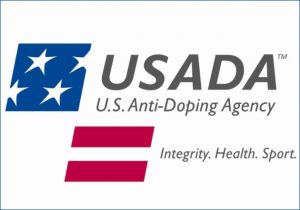One of the most exciting up and coming athletes in the sport of professional cycling has tested positive for performance-enhancing drug use according to information coming out of the USADA on June 8, 2018.
Roger Ainslie, 26 years old from California, has been handed down a 42 month suspension after it was confirmed that he had been using performance-enhancing drugs. According to the sample that had been collected by the US ADA, Ainslie was found guilty of using a metabolite of a substance known as GW 1516.

Ainslie was asked to give a urine sample during competition at the 2017 USA Cycling Elite & Junior Track National Championships. This sample was collected on August 3, 2017 and was conducted through the US ADA protocols that have been in place years now.
According to information released by the USADA, GW 1516 is a non-FDA approved and very experimental drug similar to other performance-enhancing drugs that fall under the classification of peroxisome proliferator activated receptors.
A dangerous chemical cocktail, the World Anti-Doping Agency (WADA) went so far as to issue a very rare for them public health warning specifically linked to GW 1516.
The WADA went on to say that several of the side effects brought on by using this drug are so serious that they pose significant short and long-term health risks to anyone that uses this substance. GW 1516 was a developmental chemical cocktail designed by pharmaceutical companies, but the project was terminated after they learned just how toxic the substance could be.
Obviously, some athletes are ignoring this warning and looking to take advantage of GW 1516 because of the performance-enhancing benefits it promises. Athletes like Ainslie are willing to take advantage of any leverage they can get from chemical cocktails like GW 1516, particularly if it gives them an edge over as competitive and crowded a field of competition as the world of professional cycling has.
In order to push back against athletes taking this kind of approach to their health and well-being, and to clean up the sport of cycling in general, the USADA has decided that any athlete that has conclusively proven to use GW 1516 will get an immediate and automatic four year suspension. The USADA, however, maintains the right to lower any individual suspension depending upon the unique situation of a particular athlete popping positive for this substance.
If athletes are willing to help investigators uncover the distributors of these banned substance, and are able to provide what the USADA classifies as “substantial assistance” while being open and contrite about using these PED, they are much more likely to get leniency when it comes to their suspension.
Because Ainslie was willing to open up about his use of GW 1516, and because he is in the early stages of working with investigators to bring down the distribution ring of these drugs, he was able to lower his sentence by six months. The US ADA could continue to lower his sentence should the substantial assistance he provides help to close down this distribution ring and stop other athletes from using the drugs.
Ainslie, in partnership with his brother, founded a cycling footwear company and he has San Diego community’s 2016. A prominent member of the San Diego Bicycle Club and an up and coming athlete in this sport, he won’t be able to compete in professional cycling until February 3 of 2021.
At that point in time, he will be 30 years old and may not have as much interest going up against athletes a decade or more younger than him any longer.
Source: https://www.usada.org/roger-ainslie-accepts-doping-sanction/


